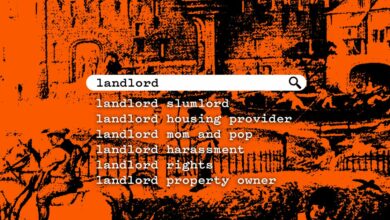What is a Grace Period? Rental Definition and Examples

Rent, utilities, groceries, loan payments and other bills are all part of life. We all have the best intention of paying each monthly payment in full by the due date. But, sometimes life gets in the way, causing us to fall behind and have late payments.
This is where grace periods come in. We’ll teach you everything you need to know about them and how they work. Thanks to a variety of definitions and examples, you’ll get a little smarter when it comes to personal finances.
Everything you need to know about grace periods
All loans, cash advances or monthly payments have a specific amount due and a fixed payment due date. If you miss the payment due date, lenders will likely charge interest or ask you to pay late fees or other penalties.
Sometimes you just need a little extra time to pay off your bill balance at the end of a billing cycle. This is where a grace period comes into play.
What is a grace period and how does it work?
A grace period is a set amount of time after a payment is due when you won’t be charged late fees or additional interest charges as long as you pay the unpaid portion within a specific period of time.
They give borrowers some breathing room to pay the monthly payment amount and avoid paying interest if they pay before a certain date. Grace periods may apply to:
- Cash advances
- A mortgage payment
- Car loans
- Student loans
- Insurance and medical expenses
- Credit card
- Lease
Let’s say your rent is due on the first of each month, but your paycheck doesn’t land in your bank account until the third. Grace periods vary, but a landlord can give tenants up to the fifth of each month to make full payment of rent. In this example, tenants have a grace period of five days to make the next payment before being charged late payments.
Now, if you pay your rent after the grace period – the sixth or seventh of the month – you’ve missed the due date and you’ll likely have to pay interest or late fees at that time.
A grace period gives borrowers a set amount of time after the deadline to make a payment and avoid interest.

How long is a grace period?
A typical grace period ranges from two to three days to a full week. The timing varies with different lenders, so it’s important to know when the billing period starts and ends and the exact period of the grace period.
A grace period is not the same as a repayment plan. A grace period gives the borrower some extra time between when payment is due and when they will actually incur interest charges.
A repayment plan is a way to manage bills and payments. You make specific payments over a set period of time until your debt is paid off. These types of plans may also have grace periods, but the grace period itself refers to the period of time you can make payments before interest or late fees are implemented.
Examples
Now that we’ve defined a grace period, let’s walk through a few more examples so you can see how they work in real-world scenarios.
Student loans
When you take out a student loan to pay for higher education, you agree to repay the debt by a certain date and for a certain period. The more payments you make, the more your balance decreases.
With federal student loans, the grace period is usually six months after you graduate or become a part-time student. You have six months after graduation to start repaying your loan.
Student loan grace periods vary, so be sure to read the terms of your loan carefully to avoid late fees or interest charges.
Credit card
A credit card grace period is shorter than that of a student loan. Typically, credit card grace periods are the length of time between the end of a billing cycle and the due date. Credit bureaus give consumers a few days or a week between billing cycles. This gives you time to make a payment on new purchases and avoid paying interest.
To avoid paying interest, it’s a good idea to make sure you pay the credit bill in full and on time. Otherwise, you could be charged interest, which could harm your credit report.
Mortgage or rent payments
Like grace periods for student loans or credit cards, most mortgage and rental periods will also have one. Mortgage lenders and landlords will specify its duration. Plus, they’ll let you know when you need to pay the money to avoid interest or late fees.
Typically, a rent grace period is about a week, but you can discuss this in the terms of the lease.

What happens if you exceed the grace period?
Missing a payment harms your financial health. Here are some things that can happen when you don’t reduce your balance owing during the grace period:
- Reduce your credit score — If you don’t reduce the balance on your credit card or other lines of credit, your credit report may suffer and your credit score may drop. Credit bureaus want to make sure borrowers pay for their purchases.
- Accumulate more debt — Debt is a slippery slope. If you miss making payments during the grace period, the amount of money you owe for rent or other purchases will continue to increase and you will have more overall debt.
- Damage to your financial reputation — As a tenant, you want a strong financial reputation so that you can easily rent new properties or apartments in the future. When a prospective landlord goes looking for information about you and your financial history, you want a solid, positive reputation so you can easily get a new apartment lease.
Things to do if you are behind on rent
If you’ve fallen behind on rent, don’t panic. There are things you can do to catch up and maintain a healthy financial record.
- Talk to your landlord — If you are behind on rent and have missed the grace period, the first thing to do is to speak honestly to your landlord about the situation. Let her know you’re late and let her know when you can pay her the rent. Honesty is the best policy in this case.
- Set up a payment plan — Once you’ve shared your situation with the landlord, you can work together to come up with a plan to submit your rent. You can make weekly, bi-weekly or monthly payments.
- Avoid new purchases — This may seem like a small thing to do if you’re behind on rent. But, when you are short on money, avoid spending in other areas of your life. It is tempting to make a new purchase. But, the more you can save, the more you will have for your other bills.
- Tighten your budget — In general, it’s good practice to stick to a budget, live within your means, work to increase your credit score, and make all your bill payments within the allotted grace period.
Key points to remember about grace periods
Grace periods give you a specific amount of time after the original deadline to make your payments before you are charged late fees. It’s crucial to know how long your grace period is and when it’s due. From there, you can plan your budget accordingly.
The information in this article is for educational purposes only and does not constitute and is not intended to constitute legal or financial advice. Readers are encouraged to seek professional legal or financial advice if they deem it necessary.




